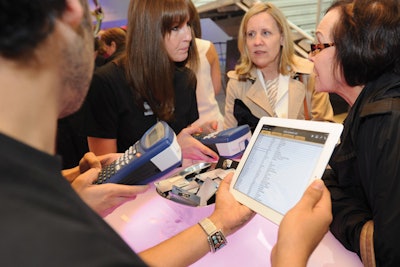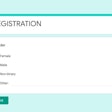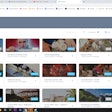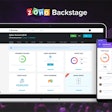
WHAT IS AN ONLINE REGISTRATION SYSTEM?
An online registration platform is software designed to provide planners with a central location to manage an event’s invitations, ticket sales, and attendee information. The paper-free tools also provide a greener—and sometimes more budget-friendly—alternative to hard-copy invitations. While planners may have different needs for event registration systems, most digital invitation providers have a common goal: helping planners get guests through the door, and manage the information necessary to do so.
THINGS TO CONSIDER
Budget
The decision on the type of system to use—whether it’s just to collect credit card payments at the door, or a more complex platform that helps manage an event—depends in large part on how much you are willing to spend. Most providers charge on a per-registrant basis, while others require a fee per event or per use of their services. Depending on the size and scope of the event, some platforms may be more useful and affordable than others.
Time
Even if you’re only looking for a simple check-in solution, consider how much time—or lack thereof—you have to dedicate to a registration platform. If you’re limited on time, a full-service platform that requires fewer steps or consulting with a design team might be the best bet. However, if time isn’t an issue, there are D.I.Y. solutions that offer tech support to help walk users through their systems.
Data
Do you want to get to know your attendees? Most platforms offer several ways to collect registrant data—from integrating custom surveys in the registration process to tracking social media interaction among attendees. Such data can be useful after the event takes place to break down statistics like attendance by demographics or calculate total donations.
Design
Depending on your needs, the different platforms offer varying degrees of design, from simple registration forms that use basic text to ones that integrate with a company Web site. For those with little to no knowledge of Web design, most platforms that offer custom pages also have design teams with whom planners can work to personalize a site.
Distribution
For events with multiple sponsors or ticket tiers, each with an allocation of tickets, some platforms enable planners to set up custom distribution for different portions of their guest lists. This is especially useful for events with V.I.P. sections, giving planners the option to create a code allowing them to make some aspects of the invitation available to the public, with others accessible only by a select group.
POTENTIAL FEATURES
Dashboard
Most online registration systems provide users with a dashboard—a control panel that can be accessed from any computer or handheld device—to handle different aspects of an event’s registration process. While in most cases only the administrator has access to the console, some platforms allow for multiple users to log in and make changes. By using it, planners can monitor registrations and track sales, upload and edit guest lists, and control social media marketing.
Ticket Tiers
Available on most online registration tools, this feature enables planners to specify different ticket prices for different groups. This is also useful for reserving seats for special guests or sponsors.
Custom Seating Arrangements
This feature allows users to customize seating charts, virtually dragging and dropping guests into a floor plan.
Guest Check-In
By using a laptop, tablet, or smartphone—including iPads, iPhones, and Android devices—planners can search guests’ names and quickly check them in the day of the event.
Marketing
Using tools that are typically integrated into the online platforms, organizers can spread the word about events by sending out personalized email invitations. Although events can be kept private, there are options to allow the public to find the gathering in search engines. By enabling attendees to share the event with friends on social media sites like Facebook, Twitter, and LinkedIn, the feature can help increase turnout.
Mobile Apps
As an eco-friendly alternative to printed programs and handouts—and to facilitate social networking—some online registration systems offer custom mobile apps. While some have do-it-yourself options with technical support, other platforms give the option to work with their design team from start to finish.
Post-Event Analytics
Built into most platforms is a feature that enables planners to track attendance—who went and who didn’t—view ticket and registration sales in real time, and boost promotional activity as needed. This is also helpful for events that collect donations, or sell tickets at the door to track funds.
QUESTIONS TO ASK
How many events will you use the registration system for?
With some systems, pricing scales down when it is purchased for multiple events.
Is the event free or will you sell tickets?
Some registration platforms are free for events that don’t charge an entry fee.
What do you need the system to do?
Some registration platforms rely on templates while others allow the user to create a fully customized design with logos and event branding. Some systems are intended primarily to help sell tickets and manage check-ins, while others provide total event management, including the ability to reserve seats, create ticket blocks, and gather data for post-event analysis and communication.
Do you want the system to integrate with social media?
More and more systems are making updates in this area, allowing users to go beyond just posting the event to popular sites such as Facebook and Twitter to now helping them find other attendees in their networks.



















